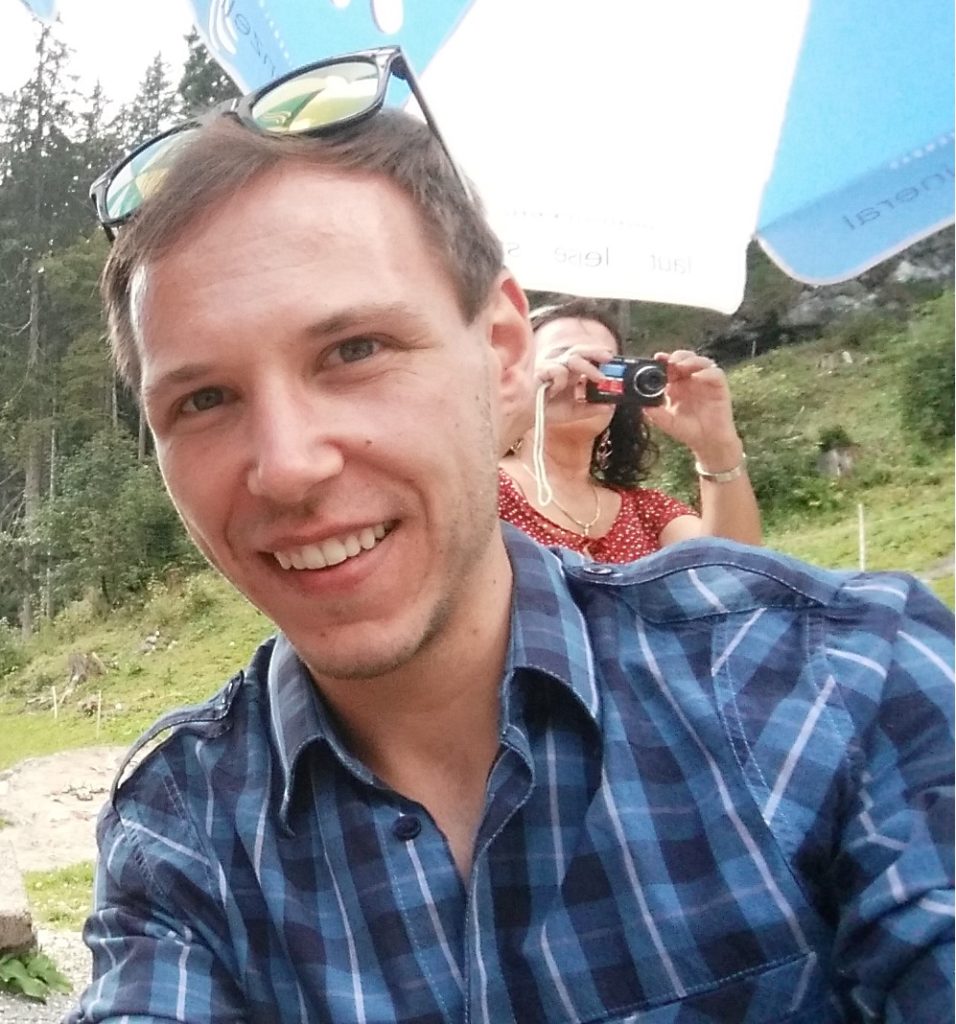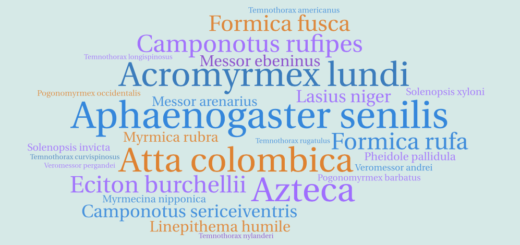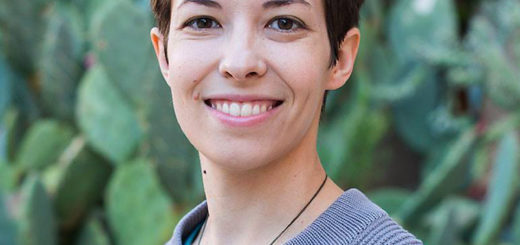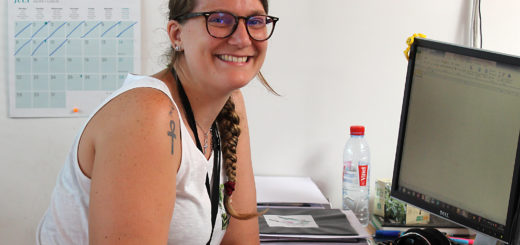Doing an ant PhD: Claudio Rabelo dos Santos Neto
Claudio Rabelo dos Santos-Neto is 34 years old and a biologist from Brazil. He did his master’s degree at the National Institute of Amazonian Research (INPA) and was an assistant professor at the Federal University of Amazonas (ICET / UFAM). He is currently doing a
An Interview compiled by Patrick Krapf

MNB: What is the topic of your PhD thesis?
CRDSN: I seek to understand how the availability of nutrients shapes the ecological, functional, and behavioral responses of ants in the Central Amazonian forest.
MNB: And in which year of your PhD studies are you now?
CRDSN: Second year.
MNB: Why did you choose ants as a PhD topic?
CRDSN: Because they are fascinating beings and an important component of the forest. In the Amazon, it is estimated that they account for about 30% of total animal biomass. Then, there is of course much to discover about ants.
MNB: How do you feel about field work?
CRDSN: Field work is very good, it goes far beyond collecting, and is an opportunity to stop and observe the ants. It is a good exercise to analyze behaviors and discover how ants interact in different situations.
MNB: … about identifying ants using a key?
CRDSN: Yes, for subfamilies and genera, I use the Baccaro et al. 2015 key, for species, I use online keys.
MNB: …working in the wet lab?
CRDSN: Here in the lab, we use only alcohol, so basically it is a dry lab.
MNB: Have you been involved in any of the -omics approaches, and what was your experience?
CRDSN: Unfortunately not. I have some ideas for future projects.
MNB: Did you acquire your statistics knowledge in university courses, from your supervisor, or on your own?
CRDSN: I do not know as much about statistics as I would like, but the knowledge I have I acquired in master and doctorate programs and with my supervisors.
MNB: What is the ideal frequency of meeting your supervisor for discussing your research from your point of view: daily, weekly, monthly?
CRDSN: I believe that it is best to meet weekly to talk and comment on the progress. If the work is going well, once a month.
MNB: True. And if you have a great idea, how do you find out if it’s really great: sitting down and thinking, discussing with your supervisor, discussing with colleagues from the group, discussing with someone not into science?
CRDSN: To sit, think, and talk to my supervisor about the idea and if we reach a consensus, I start to work on this idea!
MNB: And in an average week, how many papers do you read?
CRDSN: I read one article per day.
MNB: In an ideal world, and if you can chhose, is the working group you belong to small or large?
CRDSN: Currently our laboratory is small, but if it was larger, it would be more interesting to talk about personal advances and share gained knowledge.
MNB: True. And ideally, is your uni close to your field work site or in an urban area?
CRDSN: If there is all the logistics and resources to work, close the field work.
MNB: Have you profited more from attending conferences with narrower or with broader scope, if you have attended both?
CRDSN: Much more from those of broader scope. One gets insights related topics and can contribute and see advances of peers. Here in Brazil, we have the Simpósio de Mirmecologia, which always offers a lot to all the participants.
MNB: Relating to conferences: What is most relevant to you at a conference: attending talks, giving a talk, meeting senior scientists, meeting other students?
CRDSN: Meet senior scientists to get to know their methods, what they are working on, and hear their line of reasoning on specific subjects, which can help in my work.
MNB: Did you ever participate in a science slam or similar and if so, what was your experience?
CRDSN: No, unfortunately I did not yet participate in one.
MNB: Do your kids ever accompany you when you’re working, for example in the field?
CRDSN: My daughter is not born yet, but I would take her to a day camp to get to know nature.
MNB: That is a nice idea!
MNB: And what do you think are the advantages of first having kids and then starting a PhD / PostDoc project?
CRDSN: I think that one gains maturity and preparation for the inherent responsibilities of research by taking care of a child.
MNB: Slightly different now: If you would get 100,000 Dollar to spend for your research project, what would you do with it?
CRDSN: I would buy material for the laboratory, invest in a very good stereo microscope and photographic equipment, and stock up lab supplies (we are going through a difficult time for science in Brazil, with many budget cuts). The rest I would use for fieldwork in hard-to-reach areas.
MNB: What helps you best in your spare time to relax from work?
CRDSN: To play basketball or rugby or, when I am at a higher concentration phase, board games.
MNB: And how do you celebrate successes like getting a paper accepted, a proposal granted, or the like?
CRDSN: Go out for dinner with my lab colleagues or simply thank everyone involved in the article.
MNB: Nice idea! And what is your personal trick to get over periods of low(er) motivation?
CRDSN: Breathe, listen a song that I like, and say to myself: “This has happened before, you have already overcome all difficulties that have arisen, now do the same with this and continue!”
MNB: And what do you do to get over frustration about what you consider as unfair criticism by a reviewer?
CRDSN: Take a deep breath and go for a walk. Then return to work!
MNB: What is the one thing you would do differently when starting your PhD thesis again?
CRDSN: I would go to fieldwork in the first month of start PhD project. Time is precious!
MNB: Would you like to stay in science?
CRDSN: Yes, I really like research, and I have a lot to contribute about Amazonian ants.
MNB: If you will be supervising PhD students yourself, what will be the most important thing you will expect from your students?
CRDSN: That they talk to me about work and show interest in every phase.
MNB: Another question concerning supervision: What will be the most important thing you will want to take care of in supervising?
CRDSN: In addition to the project itself, the project schedule: to not lose the focus in each step.
MNB: Original article or review article?
CRDSN: Original articles, new information are better!
MNB: Reading or writing?
CRDSN: Nowadays, reading and processing the fieldwork data.
MNB: Writing or reviewing?
CRDSN: Reviewing.
MNB: Reviewing or considering criticism by someone else?
CRDSN: I always consider criticism to evaluate what I am doing.
MNB: The first or last 5% of time you spend with writing a manuscript?
CRDSN: The first 5%, I like to produce with a fresh head and, I am much more willing.
MNB: Informative or sexy paper title?
CRDSN: Informative.
MNB: Table or figure?
CRDSN: Figures, they are more informative.
MNB: Web of Science or Google Scholar?
CRDSN: Web of Science.
MNB: Journals financed by the author (open access) or the reader (subscription)?
CRDSN: If I have funding to pay the cost, so journal financed by the author.
MNB: Windows, OS, or Linux?
CRDSN: Windows.
MNB: Command-line or graphical-user interface?
CRDSN: Graphical user interface, although I also use R.
MNB: Mouse or touchpad?
CRDSN: Mouse.
MNB: Facebook or Twitter?
CRDSN: Twitter.
MNB: Bus or bike?
CRDSN: Bike.
MNB: Breakfast or dinner?
CRDSN: Dinner.
MNB: Sun or rain?
CRDSN: Rain, because here in the tropical region, rain means mild temperatures.
MNB: Diploid or haploid?
CRDSN: Diploid.
MNB: Sting or acid?
CRDSN: Sting.
MNB: Social parasite or host?
CRDSN: Social parasite.
MNB: Your favourite ant paper?
Because only a
MNB: Your favourite ant?
CRDSN: Tucandeira (Paraponera clavata).
MNB: …and if in another life you would be an ant, what ant would that be?
CRDSN: A litter ant, so I would find out more from my PhD.
MNB: Thank you so much for this interview!









Parabéns meu caro colega.